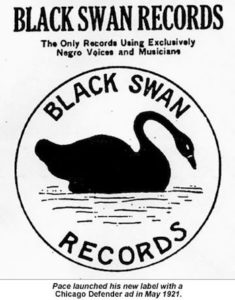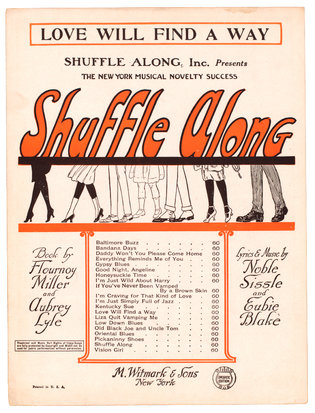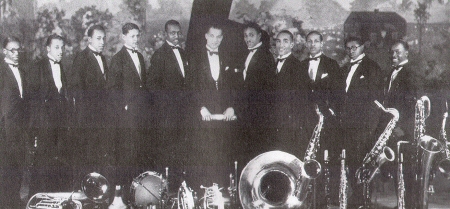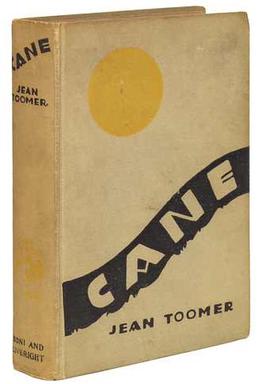25,000 people attended the “First Great Convention” of the UNIA.
Harlem Timeline
Purportedly written by Langston Hughes while he was on a train crossing the Mississippi the year before, the poem has remained a landmark piece of the period and movement.
Black Swan Records, the first notable Black-owned and operated record company in Harlem, opens.
“Shuffle Along” opens in late May, running for 484 performances through July 15, 1922.
Book of American Negro Poetry, ed. James Weldon Johnson, released. While the collection includes precursors to the movement like Paul Laurence Dunbar and founders like WEB Du Bois and Jessie Fauset (both of whom edited The Crisis,) it omits poems by McKay, Toomer, Hughes– in part because some of these had only a few poems (or had yet to be published ) in The Crisis.
Langston Hughes’ “Mother to Son” first published in The Crisis. The last quadrain resonates for generations.
Many of the poems are at once ecstatic, ambivalent, and dark. The title poem, for instance, is about a prostitute. In another poem, “America,” he writes “I love this cultured hell that tests my youth!”
“Chip Woman’s Fortune” by W Richardson opens on Broadway. It’s the first non-musical written by a Black playwright to be produced there. The one act comedy runs for a month.
It’s all-white clientele is served by a mostly black staff and entertainment, launching the national careers of Duke Ellington, Cab Calloway, The Nicholas Brothers, and a host of others.
The novel, which mixes prose, poetry, and scenes, is the first to be published from the movement that challenges literary form and is considered a model of High Modern literature.





